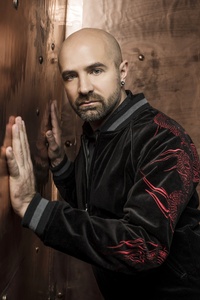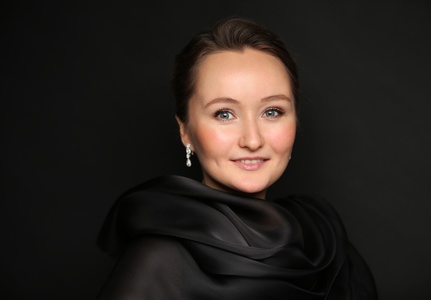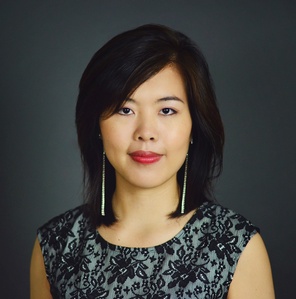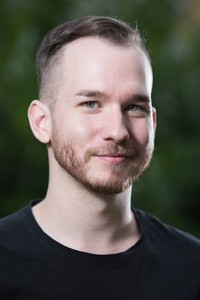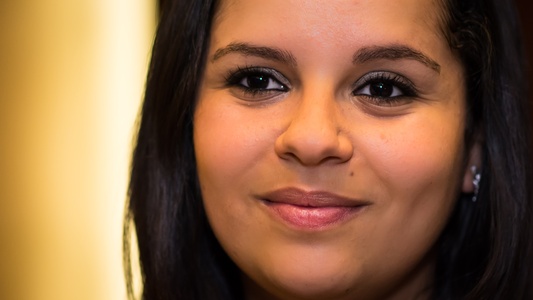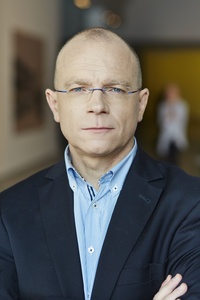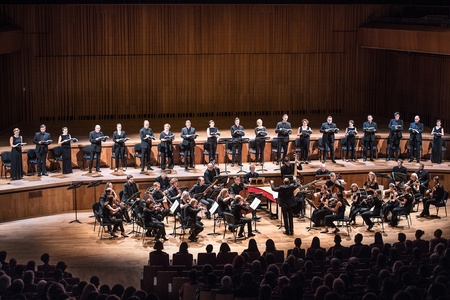Capella Cracoviensis
Jan Tomasz Adamus, conductor
Max Emanuel Cencic (countertenor)
Julia Lezhneva (soprano)
Nian Wang (mezzo-soprano)
György Hanczár (tenor)
Hasnaa Bennani (soprano)
Dilyara Idrisova (soprano)
Program:
Porpora
Opera Germanico in Germania

Subscription №4:
"The Mastership. Baroque". Part II
Max Emanuel Cencic
Max Emanuel Cencic is one of the most fascinating and versatile singing artists in the world today, and one dedicated to the revival and performance of the music of the 18th century.
Season 2020/21 included a new production of Dalbavie's Le Soulier de Satin (world premiere) at the Paris Opera; at the Bayreuth Baroque Opera Festival he sings the role of Lottario and directs the new production of Porpora’s Carlo il Calvo, the title role in Vinci's Gismondo re di Polonia, Carmina Burana in the Wiener Konzerthaus, Hasse's Cajo Fabrizio, Carlo il Calvo in concert at the Theater an der Wien and in the Amsterdam Concertgebouw. Once more, he takes on Rossini's La Donna del Lago at the Zagreb Opera and at the festival in Saarema, where he directs the opera and sings the challenging role of Malcolm.
With his remarkable mezzo-soprano voice, Max Emanuel Cencic demonstrates that Baroque singing can be both technically brilliant and at the same time modern and emotionally engaging. For over two decades he has been performing in first rank opera houses, including the Wiener Staatsoper, Theater an der Wien, the Opernhaus Zürich, the Opéra Royal de Versailles, the Bayerische Staatsoper, the Staatsoper Unter den Linden Berlin, Barcelona’s Gran Teatro del Liceu, the Théâtre des Champs-Elysées, Paris and Brussels’ La Monnaie.Concert engagements have taken him to the Laeiszhalle Hamburg, Carnegie Hall (New York), the Barbican Center (London), Amsterdam’s Concertgebouw, the Wiener Musikverein and Wiener Konzerthaus, and the Tchaikovsky Hall in Moscow.
In addition, he has sung at numerous festivals worldwide including the renowned Salzburger Festpiele. He regularly works with such conductors as William Christie, René Jacobs, Ottavio Dantone, Diego Fasolis, George Petrou, Emmanuelle Haïm and Riccardo Muti. His education as a singer began as a member of the Wiener Saengerknaben (Vienna Boys’ Choir), with a solo career as a soprano from 1992, and as a counter-tenor from 2001.On 21st September 2017, Max Emanuel Cencic celebrated the 35th anniversary of his first appearance on stage, with a performance of Orfeo in Gluck‘s Orfeo ed Euridice.
Max Emanuel Cencic entrances his audiences with his numerous projects, opera productions, CD recordings, and extensive tours. As Artistic Director of Parnassus Arts Productions he is responsible for the conception, supervision and performance of important works of the Italian Baroque, among them the sensational re-discovery of Leonardo Vinci’s last opera, Artaserse, and, more recently, Arminio. As in its premiere in 1730 in Rome, this new production, performed with an all-male cast (including five counter-tenors), was widely praised, both in its live performances and on disc. His inspired revival of Vinci’s opera Catone in Utica, with four counter-tenors in the cast, was equally successful, both on stage and as a CD recording. The CD Ottone with Max Emanuel Cencic in title role has been nominated for a Grammy.
His solo-recordings are every bit as riveting: with Venezia he charmed audiences and critics alike with highlights from Venetian opera, while the CD Rokoko contained a fascinating compilation of arias from the extended and virtually unknown opus of Johann Adolph Hasse. Max Emanuel Cencic’s most recent, critically acclaimed CD, Arie Napoletane, is dedicated to masterpieces of the Neapolitan school. His wide-ranging discography includes several world premiere recordings and has received a number of awards, among them the Diapason d’Or, the Preis der Deutschen Schallplattenkritik, and Croatia’s Porin Prize. His discs have been Editor’s Choice in Gramophone magazine on several occasions. The French Ministry of Culture has made him a Chevalier de l’Ordre des Arts et des Lettres.
Max Emanuel Cencic has become in the meantime also an acknowledged director. His live production of Hasse’s Siroe toured all over Europe and was released on CD by Decca. At the Händel festival in Karlsruhe in 2016 and 2017, he undertook the double role of lead singer and director of Händel’s opera Armino and for 2019 and 2020 he will direct Händel’s Serse and sing Arsamene. His 2019 Salzburger Pfingstfestspiele production of the rarely played opera Polifemo (Porpora) at the Felsenreitschule, were he also sang the role of Ulisse, was highly critically acclaimed. New productions in the upcoming years are Rossini‘s Tancredi, Mozart’s Die Zauberflöte, Porpora’s Carlo il Calvo and Vinci’s Alessandro nell‘Indie.
Since september 2020, Max Emanuel Cencic has been Artistic Director of the Bayreuth Baroque Opera Festival. The first edition of the spectacular festival took place despite the corona crisis and was a huge success with the public and the press. 400,000 worldwide viewers followed the broadcasts online and all the performances in Bayreuth were sold out. Max Emanuel Cencic directed the new production of Carlo il Calvo where he also sang the role of Lottario. The production was awarded by the French magazine Forum Opera, best new opera production of the year 2020. In his first season as the artistic director, Max Emanuel Cencic invited world stars such as Joyce DiDonato, Franco Fagioli and Jordi Savall to Bayreuth. He also sang the title role in the concert version of the opera Gismondo re di Polonia by Vinci on the stage of the Margravial Opera House in Bayreuth.
Season 2021/22 includes Porpora’s Carlo il Calvo and Polifemo in Bayreuth, Gismondo in Dortmund, Orlando Furioso in Paris and Orfeo ed Euridice in Berlin.
Julia Lezhneva
Ms. Lezhneva’s international career skyrocketed when she created a sensation at the Classical Brit Awards at London’s Royal Albert Hall in 2010, singing Rossini’s Fra il padre at the invitation of Dame Kiri Te Kanawa. A decade later, she explores a broad repertoire with orchestras, conductors, festivals, operas and oratories. She made to great acclaim her debuts with Berliner Philharmoniker and at the Musikverein Wien, in October 2019 and December 2019, respectively. In 2020 season she returned to Mozartwoche Salzburg, this time with Sir András Schiff, as well as to the Théâtre des Champs-Élysées with a performance of Handel’s Alessandro with Kammerorchester Basel and Diego Fasolis.
Previous season, she gave her debuts with Wiener Philharmoniker, Symphonieorchester des Bayerischen Rundfunks and Wiener Symphoniker. The world’s top orchestras who invite Julia Lezhneva include the Gewandhausorchester Leipzig, Münchner Philharmoniker, Deutsche Kammerphilharmonie Bremen, Mariinsky Orchestra, Russian National Orchestra, Orquestra Nacional de España, Evgeny Svetlanov Orchestra, Seattle Symphony Orchestra and Seoul Philharmonic. She works regularly with very well-known conductors like Adam Fischer, Giovanni Antonini, Herbert Blomstedt, Paavo Järvi, Vladimir Jurowski, and Andrea Marcon.
In 2019 she was “Artist in Residence” at Kissinger Sommer. She is a welcome guest at the Salzburg Festival, Schleswig-Holstein Musik Festival, Lucerne Festival, Dubrovnik Festival, Festival de la Vézère, Sion Festival, Nordland Musikfestukke Bodö to name a few.
Ms. Lezhneva’s debut in Handel’s Alcina as Morgana at the Staatsoper Hamburg was widely celebrated in September 2018. She was immediately invited to return for Il barbiere di Siviglia (Rossini) and additional performances of Alcina. In 2021, she sings the role of Poppea in Händel’s new production of Agrippina (director: Barrie Kosky) – again at Staatsoper Hamburg. She appears in several other opera productions including Vivaldi’s Orlando Furioso (Angelica), Porpora’s Polifemo (Galatea), Germanico in Germania (Ersinda), Carlo il Calvo (Gildippe), Mozart’s Le nozze di Figaro (Susanna, Barberina), Handel’s Tamerlano.
In winter 2019 she had her debut in Bach’s Weihnachtsoratorium; the same season saw her in Händel’s Messiah and La Resurrezione, Vivaldi’s Juditha triumphans; spring 2019 she sang in Haydn’s Schöpfung and Mahler’s Symphony n° 4. Julia Lezhneva gives Lieder recitals, too, that brought her for example to Kissinger Sommer (2019) and to Vienna (2019); her repertoire includes Lieder from Russian, English and German composers.
An exclusive Decca recording artist, Ms. Lezhneva released her latest solo album, Graun Arias, in 2017. Recorded with Concerto Köln, it won an OPUS Klassik in the following year. Other releases include Vivaldi Gloria with Franco Fagioli and Diego Fasolis (2018), Porpora Germanico in Germania with Max Emanuel Cencic (2018), Handel Arias with Il Giardino Armonico (2015), Ms. Lezhneva’s much acclaimed solo-debut Alleluia, also with Il Giardino Armonico (2014), and Pergolesi Stabat Mater with Philippe Jaroussky, Diego Fasolis, I Barocchisti and the Swiss Radio and TV Choir (2013).
Born in 1989 in a family of geophysicists on Sakhalin Island off the Pacific Coast of Russia, Ms. Lezhneva began playing piano and singing at the age of five. She graduated from the Gretchaninov Music School and continued her vocal and piano studies at the Moscow Conservatory Academic Music College. At 17 she came to international attention as the winner of the Elena Obraztsova Opera Singers Competition, and was invited to share the stage with Juan Diego Flórez at the opening of the Rossini Opera Festival in Pesaro in the following year. In 2009, she won first prize at the Mirjam Helin International Singing Competition in Helsinki and the following year took first prize at the Paris International Opera Competition, as the youngest contestant in each competition’s history.
Opernwelt magazine named her “Young Singer of the Year” in 2011 for her debut at La Monnaie in Brussels. The following year she performed at the Victoires de la Musique Classique in Paris.
Julia Lezhneva’s teachers and mentors include Dennis O’Neill, Yvonne Kenny, Elena Obraztsova, Alberto Zedda, Richard Bonynge and Thomas Quasthoff.
Dilyara Idrisova
Russian soprano Dilyara Idrisova was born in Ufa in Bashkortostan in 1989 and began her musical studies with Milyausha Murtazina in her home city before attending a course at the Moscow Conservatory, which she completed with distinction in 2014. She has also attended masterclasses with Deborah York in England, Max Emanuel Cencic in Austria and Ildar Abdrazakov and Julia Lezhneva in Russia. In 2016 she won the second grand prix and the audience prize at the International Singing Competition in Toulouse.
Since 2014 Dilyara Idrisova has been a member of the Bashkir State Opera and Ballet Theatre in Ufa. Her international career began at this time. In the course of the 2014/15 season she took part in a European tour of Handel’s Alessandro, singing Lisaura alongside Julia Lezhneva, Max Emanuel Cencic and Xavier Sabata with Armonia Atenea under George Petrou. Performances were given in the Tchaikovsky Concert Hall in Moscow, the Palais des Beaux-Arts (BOZAR) in Brussels and at the Handel Festival in Halle. Subsequent appearances included Arasse in Hasse’s Siroe in Kraków, Moscow, the Amsterdam Concertgebouw, the Opéra de Lausanne and the Hesse State Theatre in Wiesbaden, Sabina in Pergolesi’s Adriano in Siria at the Opéra Royal in Versailles and at the Theater an der Wien and Bach’s St Matthew Passion and St John Passion at the Philharmonie im Gasteig in Munich.
Recent highlights include Poppea in Handel’s Agrippina at the Opera Vlaanderen in Antwerp, Colloandra in Salieri’s La fiera di Venezia at the Schwetzingen Festival, Giuditta in Vinci’s Gismondo, re di Polonia at the Theater an der Wien, her debut at the Hamburg Elbphilharmonie in 2019 and CD recordings of Porpora’s Germanico in Germania and Handel’s Ottone. Following her Salzburg Whitsun Festival debut in Porpora’s Polifemo, Dilyara Idrisova appeared as Bellezza in Handel’s Il trionfo del Tempo e del Disinganno at the Opéra national de Montpellier, as Giuditta in Moscow, Warsaw and at the Klangvokal Music Festival in Dortmund and as Evanco in Handel’s Rodrigo at the Theater an der Wien.

